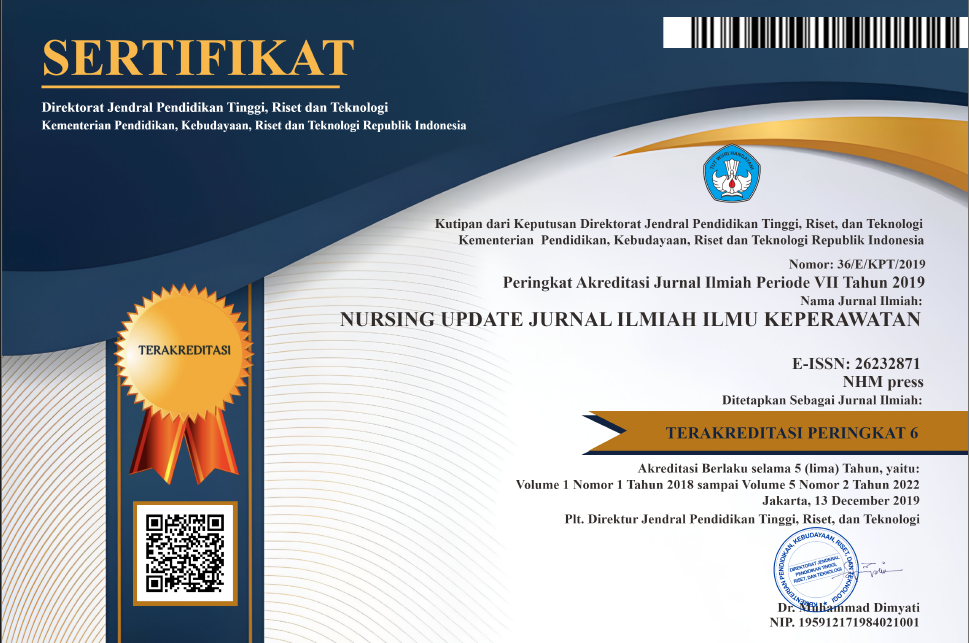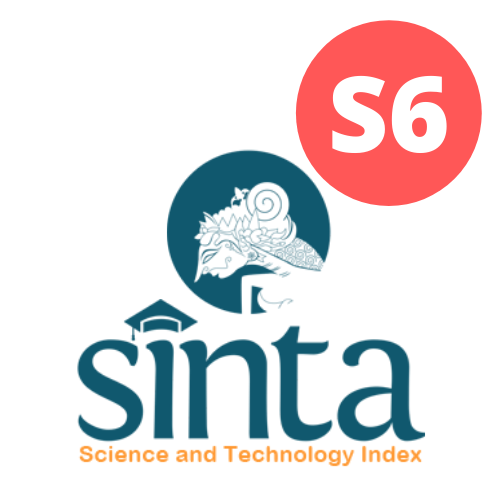The Correlation between Parents' Health Behavior and Acceptance of the Covid-19 Vaccine in Children Aged 6-11 Years at Mi Nurul Ulum, Sarikemuning Village, Senduro
Abstract
Vaccines provide protection not only for the people who have been vaccinated but also for the broader community by reducing the spread of disease in a population. Children are a country's future human capital asset, so the COVID-19 pandemic that affects children must be a concern, as must the need for vaccinations appropriate for their age. Health behavior is expected to become a basic reference in the form of a Health Belief Model that combines knowledge and action by individuals or groups referring to health and preventive measures. This study aims to identify the relationship between parental health behavior and acceptance of Covid-19 vaccination in children aged 6-11 years at MI Nurul Ulum, Sarikemuning Village, Senduro.
This research uses quantitative research, and the research design uses descriptive correlation, with a cross-sectional design. The total population is 110 parents whose children attend MI Nurul Ulum, Sarikemuning Village, Senduro, Lumajang. The Sampling was 110 people using the Total Sampling technique. The questionnaire data was then analyzed using univariate and bivariate analysis with the chi-square test.
The results of the Chi-Square analysis test show a value of α < 0.05, namely (α = 0.000) which means that there is a correlation between parental health behavior and acceptance of COVID-19 vaccination in children aged 6-11 years at MI Nurul Ulum, Sarikemuning Village, Senduro Lumajang. The OR value of this study was 58,556 which means that parents' health behavior had an effect of 58,556 times on acceptance of the COVID-19 vaccine in children.
The conclusion is that there is a correlation between Parental Health Behavior and Acceptance of COVID-19 Vaccination in Children aged 6 -11 Years at MI Nurul Ulum, Sarikemuning Village, Senduro, Lumajang. The results of this research can be used as material for analysis and follow-up plans so that parents' poor health behavior and low acceptance of the Covid-19 vaccine can change for the better so that the achievement of COVID-19 vaccination in children can increase.










